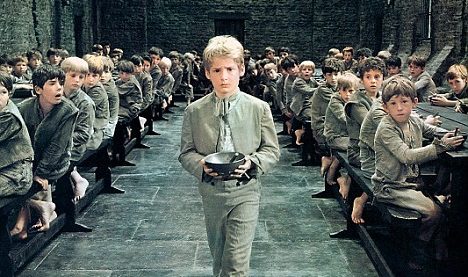Most of us think of Labor Day as a three-day weekend of barbecues, parades and boating accidents, the unofficial end of summer and our last chance to wear white legally until spring. But we’ve forgotten what it really means: a day of rest to commemorate the hard labor we’ve put in all year—unless you’re a member of Congress, in which case it means the end of your five-week paid vacation (cost to U.S. taxpayers: $9 million).
Let’s remember that Labor Day became a federal holiday in 1894 after 12,000 U.S. army troops helped settle the Pullman Strike in Chicago by shooting and killing a bunch of union workers, forcing Congress to unanimously pass a bill declaring a national holiday for those workers left unshot in the hope of quelling further bloodshed, especially their own.
So for more than a century afterward, workers have been satisfied with their day of barbecue-stained recognition, while U.S. troops have only occasionally had to kill them. Yet even without bloodshed, union ranks have been decimated: in 2010 the number of union workers was 14.7 million, or less than 12 percent or the workforce, the lowest in seventy years. Many factors have contributed to the decline of unions over the decades, among them automation, globalization, a shift away from manufacturing, and President Reagan’s eureka realization, “Hey, why does air traffic need controlling anyway?” In the past year alone, fifteen states have introduced or passed legislation eliminating collective bargaining rights, ostensibly in order to head off pension commitments that will bankrupt our municipalities, trigger hurricanes, and result in enforced gay marriage for all Americans. The more obvious goal: further weakening organized labor so that when U.S. troops some day return home from fighting terror overseas, they’ll be easier to shoot.
So what’s left for union workers? As it turns out, a job in local or federal government: since 2009 more union workers work for the government than the private sector for the first time in our history. The shift began during the eight years of the Bush administration when only a meager 1.08 million new jobs were created and, since the private sector lost 650,000 jobs, all those gains were in government jobs… brought to you by the party that serially promises you smaller government.
Which brings us back to Congress, where the GOP mandate-slash-screed continues to be about bloated, inefficient government. You might ask yourself, Why would anyone who believes in smaller government take a job in government? Maybe because it pays $174,000 a year, 3.4 times more than the average full-time American worker, which puts them in the highest paid 5 percent of U.S. workers; but benefits (including free government-sponsored health care that they want to repeal for everyone but Congresspersons) push their compensation closer to $285,000, or way more than they could earn, say, working in the steel industry complaining that it was stupid and bloated and inefficient and hey, where are my Steelers tickets?
So this Labor Day put down that fried butter on a stick and put your hands together for a real American success story: our 535 members of the 112th United States Congress, who get paid an obscene annual salary for a part-time job working for an entity that they think employs too many people and does too much with incredible inefficiency, until they retire on fat, publicly paid pensions. These guys must have an awesome union!
